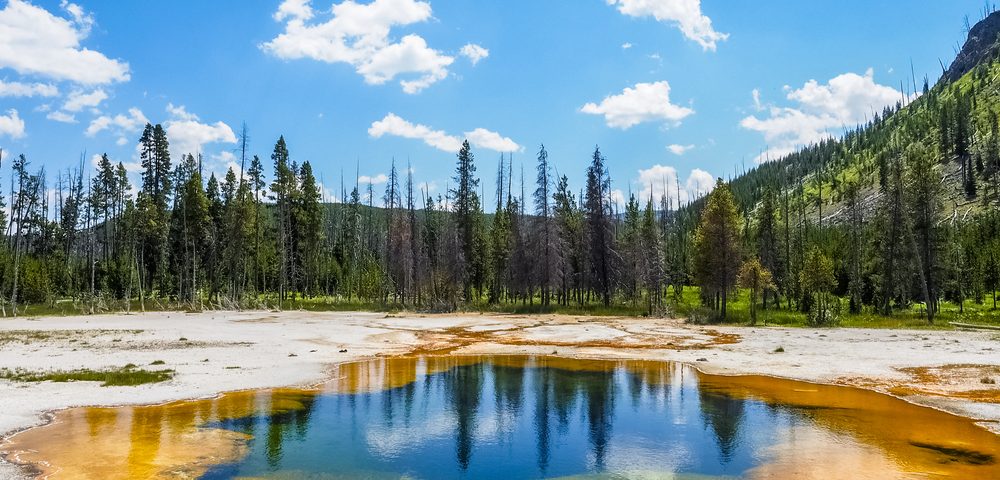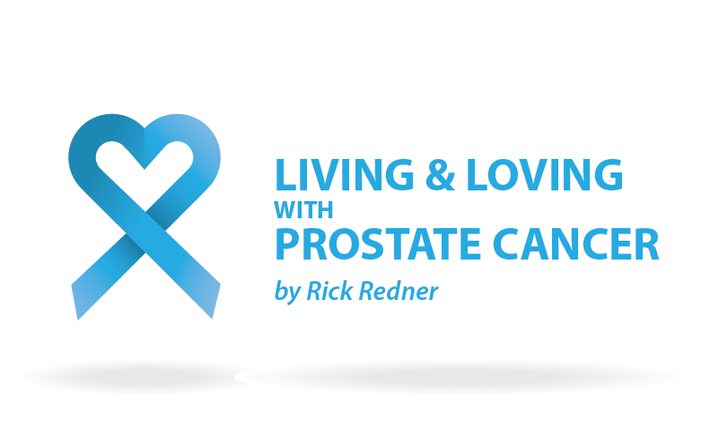In my younger days, driving an RV 600 miles in a day wasn’t my favorite thing to do, but I had the energy and ability to do so.
As my wife and I drove to Yellowstone National Park, we planned to arrive at our campground in three days. This meant we needed to drive approximately 350 miles a day. I expected this to be an easy task to accomplish.
I’m not a fan of unwanted change. Whether those unwanted changes come naturally as a result of getting older or from my prostatectomy, I tend to react with frustration and anger. The first things I do are born from desperation and a futile attempt to get back what I’ve lost.
On our first day, we had to drive 375 miles to our campsite. I became seriously fatigued before we drove 250 miles. With the help of three cups of coffee, we made it. Since I don’t like drinking coffee, I purchased caffeine pills for day two.
Day two was a 325–mile drive. I thought it would be easier for me. I was wrong. I was exhausted before we drove 200 miles.
When it took two caffeine pills and coffee to get to the next campground, it became very clear to me something had permanently changed. I was no longer capable of driving 600 miles; in fact, 300 miles was a push.
I have a family history of high blood pressure and strokes. I’ve had high blood pressure for decades. It’s only a matter of time before I experience a stroke. Overdosing myself with caffeine — not once, but on multiple days — will hasten the day I’ll experience a stroke, which is why my first thought was to quit RVing.
After talking to my wife, my perspective was radically changed. We came to the conclusion of slowing down our pace in order to have time to enjoy God’s creation, our campgrounds, our day, and each other. It’s taken me 65 years to figure this out. I couldn’t decide whether to laugh or cry.
I believe successfully coping with this unwanted change due to aging set the stage for me to successfully cope with a change brought about by prostate surgery.
Years after regaining urinary control, I’ll still leak. A cough, bending down, lifting something, an unexpected sneeze, all can cause me (and most men living without their prostate) to leak urine.
I’ve experienced another issue I haven’t found discussed in the literature. After I’m finished urinating, I can experience a delayed leak of a significant amount of urine. When this happens I wet through my pants.
While on a tour of Yellowstone, that’s exactly what happened to me. My shame and embarrassment went through the roof. Not only was I with strangers, but also my oldest son and daughter–in–law were on this tour with me.
As I examined the noticeable wet spot, I thought about my options. My preferred option wasn’t possible. If I had a private restroom I would have removed my pants and put the wet spot under the electric hand dryer. Since there were others in the restroom, that option was closed. Option two was to towel dry the spot and hope that I didn’t end up smelling like urine. Option three was to wash the spot off, towel dry my pants, and walk back to the tour van with a much larger and noticeable wet spot on my pants.
I was surprised that the decision was easy. There was no way I wanted to risk smelling up the tour van with urine. I took soap and water, washed the urine spot, then towel dried my pants. My wet spot was significantly larger and more noticeable as I left the restroom, but I didn’t care.
I realized I’d put the welfare of others ahead of any potential shame or embarrassment I might feel. If anyone asked me how my pants got wet, I was prepared to say, “I spilled water on my pants,” which is exactly what I did. There was no need to add that I spilled water on my pants because I’d leaked urine on my jeans.
Just as I’d come to accept my limitations on driving my RV, I came to accept the reality of occasionally leaking urine on my pants. I’d come a long way since surgery. When I leaked through my diaper and wet my pants in public, I refused to have friends visit and I refused to leave home for an entire month.
What unwanted change has your treatment of prostate cancer brought into your life? Are you still unhappy or at war with those unwanted changes, or have you made peace with them?
***
Note: Prostate Cancer News Today is strictly a news and information website about the disease. It does not provide medical advice, diagnosis, or treatment. This content is not intended to be a substitute for professional medical advice, diagnosis, or treatment. Always seek the advice of your physician or other qualified health provider with any questions you may have regarding a medical condition. Never disregard professional medical advice or delay in seeking it because of something you have read on this website. The opinions expressed in this column are not those of Prostate Cancer News Today, or its parent company, BioNews Services, and are intended to spark discussion about issues pertaining to prostate cancer.



I feel for you, but I’ve been really lucky these now over 14 years post surgery. I rarely leak and it’s usually due to pain meds or a few drinks. I wear black jeans which cover any wetness if I’m using pain medication or out enjoying friends with a few drinks. By taking off 60 pounds and my almost daily workout at the gym I’ve maintained my energy level. However, once I started Xtandi 3+ months ago I became more and more sluggish and my oncologist suggested Ritalin. So far that has given me back my zip. So far is short term, but looks promising. Something to maybe check out. Anyway, thanks for all you and your wife have done for all us guys in this prostate boat. Keep up the great work.
Thanks! Wish you success in fighting this disease
I’m doing the watchful waiting routine. But the leakage is nothing compared to the neuropathy in my hands. I cannot find the zipper tab to pull down the zipper. I find doing my kegel exercises helps quite a bit. I also got accustomed to waiting for the post pee drip.
Sorry to hear about your neuropathy. Why continue to wear pants with zippers. I’m wearing a pair of jeans right now that don’t have zippers.